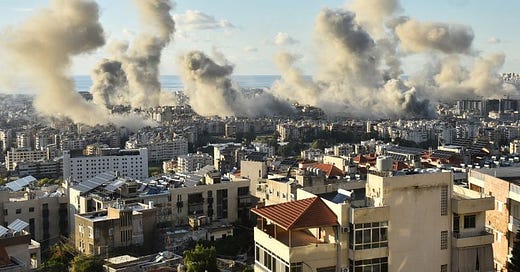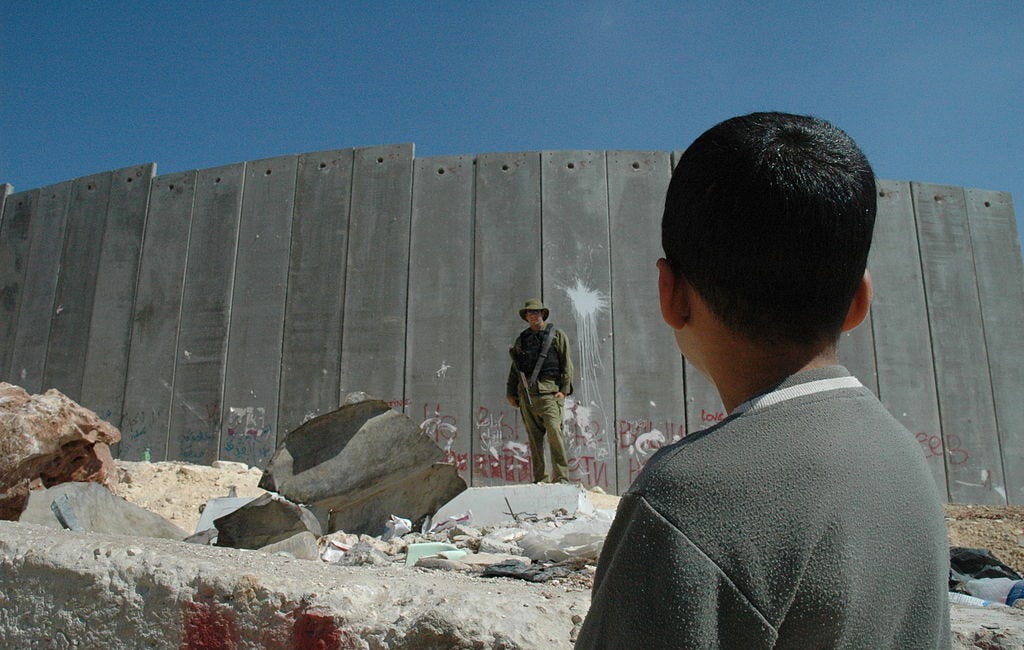Just how genocidal is the average Israeli? Here's a snapshot
While the Lebanese return to their homes in the south, the Israelis are ruing the tenuous end of their genocidal war.
The ink hasn’t yet dried on a tenuous ceasefire agreement between Israel and Lebanon, and the triumphant Lebanese are back to their localities, burying their dead, cherishing their martyrs, mending their wounds, assessing the damage, rebuilding their homes, and starting afresh. Meanwhile, the Israelis? Well, they want more genocide. Typical.
It’s an absolutely stunning contrast considering the Lebanese have no reason — absolutely none — to trust the treacherous US and France mediated ceasefire and the Israelis — who have already shot at journalists, fired shells at multiple towns in the south, arrested four Lebanese, ordered civilians not to return to their homes in the south, drone bombed a car, and fired 280 kilometres inside Lebanon on the first two days of the ceasefire — but they still have, while the Israelis are expressing concerns about going back to their homes in the north for as long as Hezbollah continues to exist. The same Hezbollah which insisted on specifically attacking Israeli military bases and soldiers despite their enemy making no distinction between a civilian and a fighter throughout its nearly 14-month-long battle with the Zionist state.
“What do I say? That it’s very bad, real bad,” Nahariya resident Levana Karsenti told Reuters of the ceasefire agreement. “They [the government[ did nothing and our soldiers were wasted away for nothing. Bibi [Netanyahu] should pack himself out of the government quickly, even though I supported him. He needs to go home urgently.”
“I have no problem with a ceasefire but I don’t think we should stop now,” said Tzahi David Hafsadi, a resident of Kiryat Shmona Hafsadi in northern occupied Palestine. “I paid a price, my family paid a price, my community paid a price. I feel like we didn’t finish the job, so I don’t know why we paid this price.”
“It’s a problem that we stopped the war and didn’t finish the job,” said Moran Brustin, a settler at Kibbutz HaGoshrim. “I don’t support war but it seems like nothing changed. There was a siren a few minutes ago and I had to put my kids on the floor and lie on top of them because we don’t have a safe room in the house. We need to trust our army but I think that after October 7 that’s hard, because there was no one there.”
The rhetoric of “we didn’t finish the job” runs rampant in Israeli society. At its core, finishing the job in Lebanon entails eradicating Hezbollah completely which means removing any trace of resistance against the land-hungry and genocidal Israelis, who eye all of Lebanon as part of an eventual Greater Israel. To put it bluntly, it means only one thing: killing every conscientious Lebanese who supports the resistance against their annihilation. In other words, a vast number of Israelis are genocidal — a fact that has been frequently made stark in poll after poll that have shown the widespread belief among the Israeli public that their army isn’t being brutal enough in its annihilation of its enemies.
The leaders in these illegal settlements on ethnically cleansed Palestinian lands are equally genocidal. “We are now entering a situation far worse than October 6, they’re misleading us,” said David Azoulay, the head of the Metula council in northern occupied Palestine.
One mayor described all of southern Lebanon, which saw hundreds of thousands of civilians flee north for their life in the face of relentless Israeli aggression, as “military bases” and wants them to cease from existence. “These are military bases ... for the purpose of attacking the northern border communities, and therefore it is impossible to accept their continued existence,” said Avichai Stern, the mayor of Kiryat Shmona.
Amit Sofer, the head of the Merom HaGalil Regional Council, was able to couch his genocidal rhetoric a bit better for a few sentences before reverting to the Israeli mean. “Unfortunately, there is a difference between quiet and security. One wants to live in a place where there is no need for security, which is the basis and foundation of human needs,” he said. Before adding, “These aren’t villages [in southern Lebanon]; these are terror outposts. They have no choice but to cooperate with terror organisations in Lebanon.”
The uninitiated non-Arab world has learned over the last 14 months the Israeli fondness for attributing unto its enemies what it harbours within itself. In exercising that same trait, Soviet-born Israeli politician Avigdor Liberman completely twisted the nature of the ceasefire deal (which gives Israel wide latitude to resume aggression against the Lebanese), “This deal only serves to limit us and, by contrast, does not limit the other side at all.” He goes on to add: “It would have been better to withdraw from Lebanon with no deal at all.”
In the second month into Israel’s annihilation of Gaza, by which time thousands of Palestinians had already been killed and thousands more were under the rubble, a staggering 94.1 percent of the Israeli Jews said that the IDF was either “using too little firepower” or “using an appropriate amount of firepower.” Of the remaining, 4.2 percent couldn’t make up their mind whether the IDF was “using too much or too little firepower” — in other words, 4.2 percent of the respondents in the country with the cheapest internet rates in the world couldn’t find out what the rest of the world was watching with its naked eyes, likely because they were busy getting high on IDF snuff porn of the besieged and brutalised Palestinians. In May, 73 percent of the Israelis were of the opinion that their genocide in Gaza had “not gone far enough” or “been about right.” This is the same society that in August voted 61 percent in favour of its troops’ right to rape the Palestinians and took out protests in support of that right.
It should surprise no one, then, that the Israelis don’t support a ceasefire despite inflicting massive damages to both Hezbollah and the Lebanese civilian population.
According to official Israeli numbers, 73 of its soldiers perished on the northern front and 45 of its civilians were killed by Hezbollah attacks. In comparison, Israel has destroyed 37 Lebanese towns and over 40,000 houses during its months-long onslaught. It has reduced entire housing complexes to unrecognisable rubble in various suburbs of Beirut and killed hundreds of civilians in the process. Further, Israel has wiped out the topline of Hezbollah leadership, including its long serving chief Hassan Nasrallah, on its way to killing over 3,900 Lebanese civilians.
Data in late September showed that the Israelis had attacked Lebanon 4.3 times more than Hezbollah had fired into Lebanon — such was the disparity between the two warring parties.
And yet, the average Israeli’s fill of this bloody spectacle remains unsatiated. He wants more Arab land, more Arab blood, more killings, more genocide. Not just in Gaza and the West Bank, but also in Lebanon — and further forward.
This is the nature of the psychopathic enemy that the Arab resistance in the Levant is dealing with, an enemy which instead of facing censure for its terrorism has been granted complete impunity from the Western powers, an impunity that has emboldened it to act with ever-increasing savagery. It is nothing but a mark of herculean restraint — guided by the rules of warfare rooted in the Islamic faith — that has prevented the resistance factions from replying to barbarism with barbarism.
I need your help!
I have had to start a fundraiser on my Ko-fi page: https://ko-fi.com/palestinewillbefree. Thanks to the generosity of my readers, I am already halfway there. It would be amazing if you could lend a helping hand and push me to the finish line. Your paid subscriptions also go a long way. Thank you for reading and your support.
A stark contrast
The Israelis murdered Palestinian educator and poet Refaat Alareer on December 6, 2023. Refaat taught English literature at the Islamic University of Gaza. He was one of the leading lights of the literary scene in Gaza and was well-known outside of the tiny enclave for his writings as well as preparing his students in the craft of storytelling.







Liberals in America keep telling me, "Remember, this is the action of the Israeli government, not the people." It's really hard to seem the difference. There may be good Israelis, but they seem to be hard to find.
The last paragraph is profoundly true